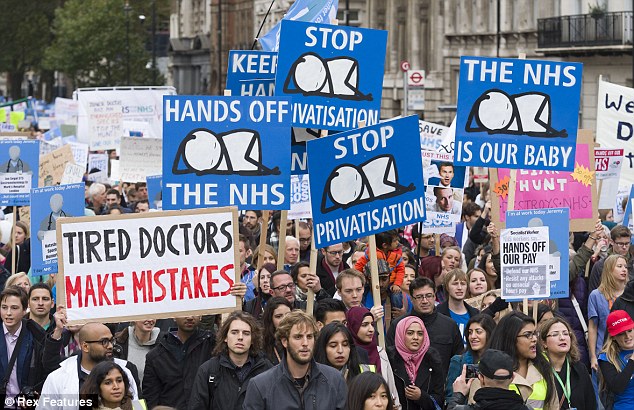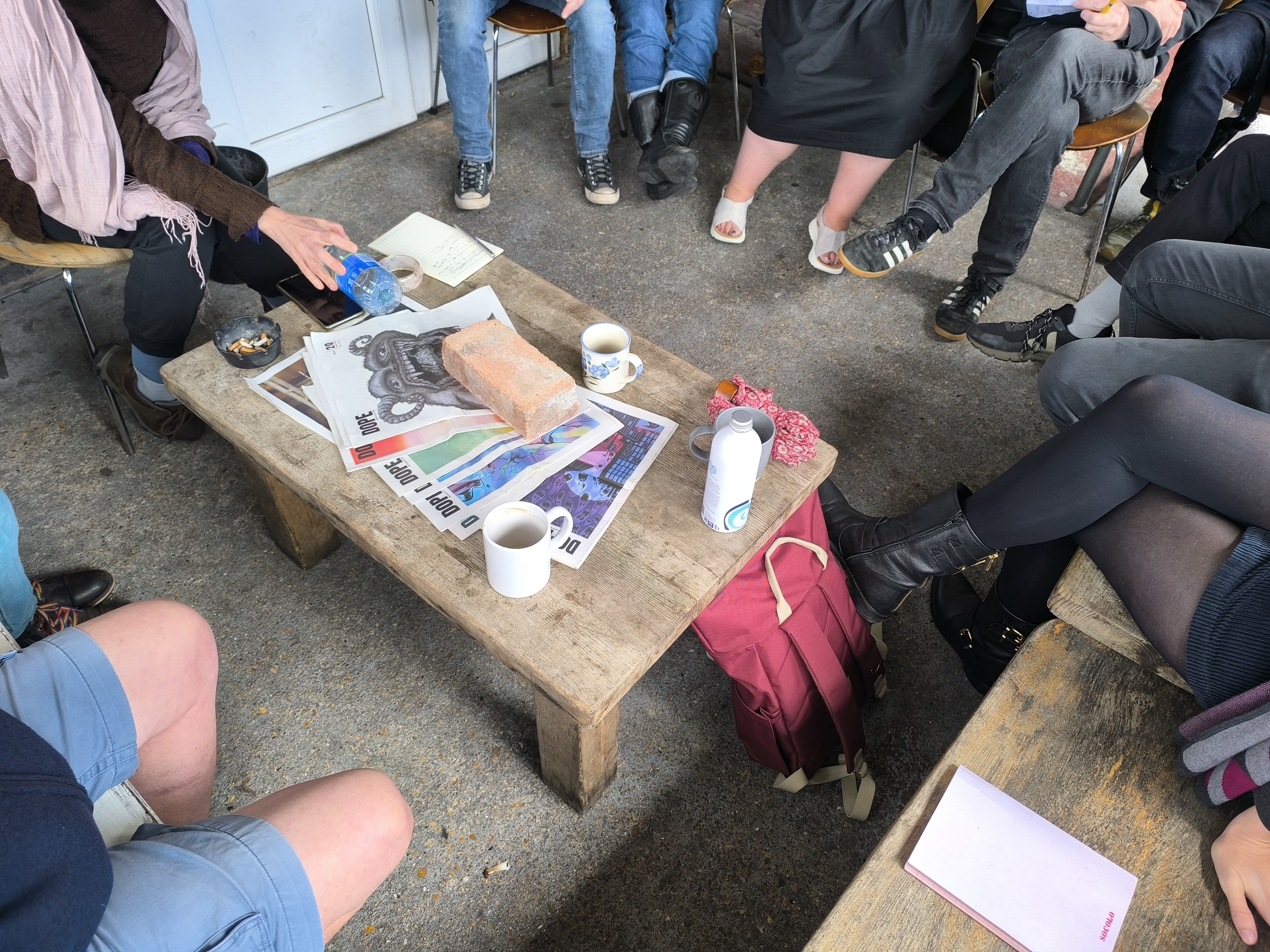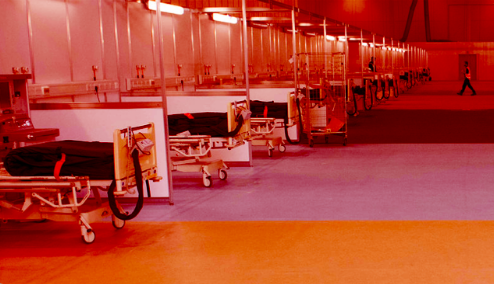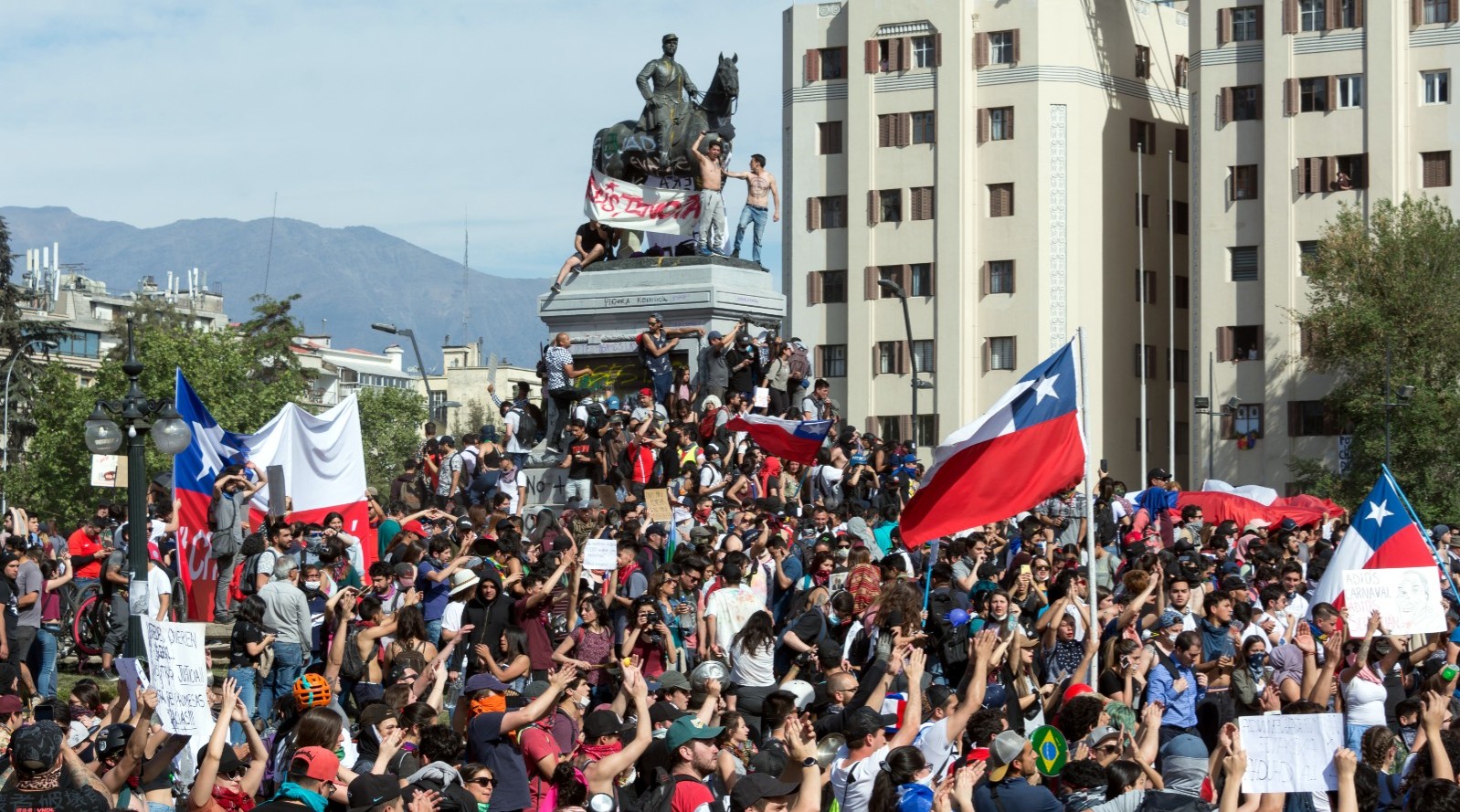On Tuesday April 26th thousands of junior doctors will be taking strike action in defence of their working conditions and to highlight the state’s attacks on the NHS. In solidarity, Plan C and others have called for a day of action, under the slogan ‘Picket the Profiteers’, a series of ‘creative disruptions’ throughout the first day of the strike, which attempts to expose those profiteering from the lucrative contracts generated from the privatisation of essential health services. As confirmed by NHS staff, these sales will ultimately lead to reduced staff/patient ratios, longer waiting times for patients and a greater workload for doctors and nurses which places patients at risk.
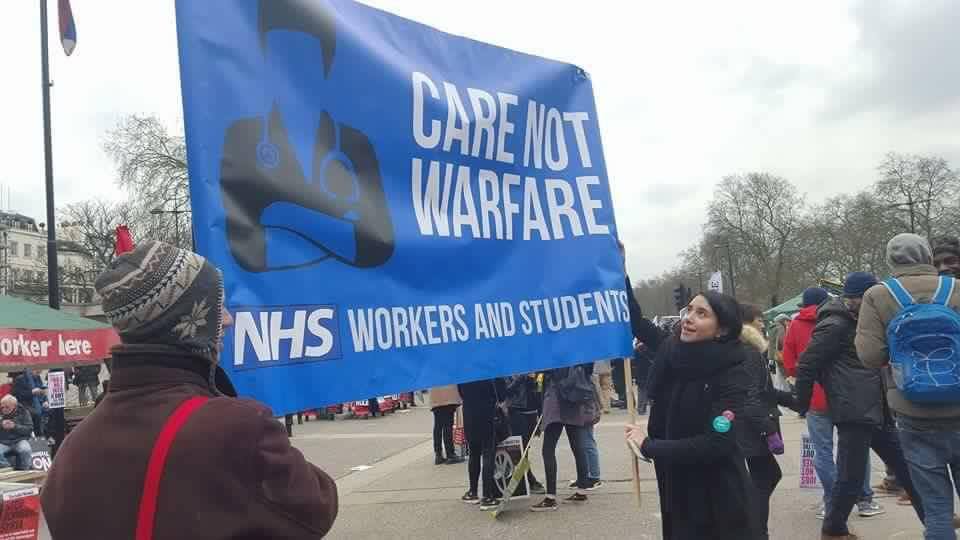
Picket the Profiteers.
Actions have so far been planned in London, Manchester, Chester, Birmingham, Liverpool, Leeds, Oxford, Brighton, Leicester, Sheffield and Newcastle. A simple guide has also been provided to help supporters organise more actions in their own towns and cities. This guide can be found at http://www.pickettheprofiteers.org/
Where have we come from…the defeat of the workers movement?
Since the 1970’s the power that trade unions could exercise in defence of workers has been severely curtailed due to a wave of repressive legislation aimed at limiting their strength.
This legislation, which criminalised ‘cross-sector’ worker solidarity was accompanied by state violence against working class communities engaged in solidarity. While union membership can and does guard against the driving down of wages and conditions in some instances, the trade union movement has become more incorporated into maintaining the current state of things in the face of its own diminishing powers, so called ‘business unions’.
In recent times the focus of ‘one day strike actions’ has produced little material gains for workers, leading some to accuse trade unions of ‘performative action’ with little strategic attempts to galvanise a wider constituency of struggles emerging in response to severe austerity.
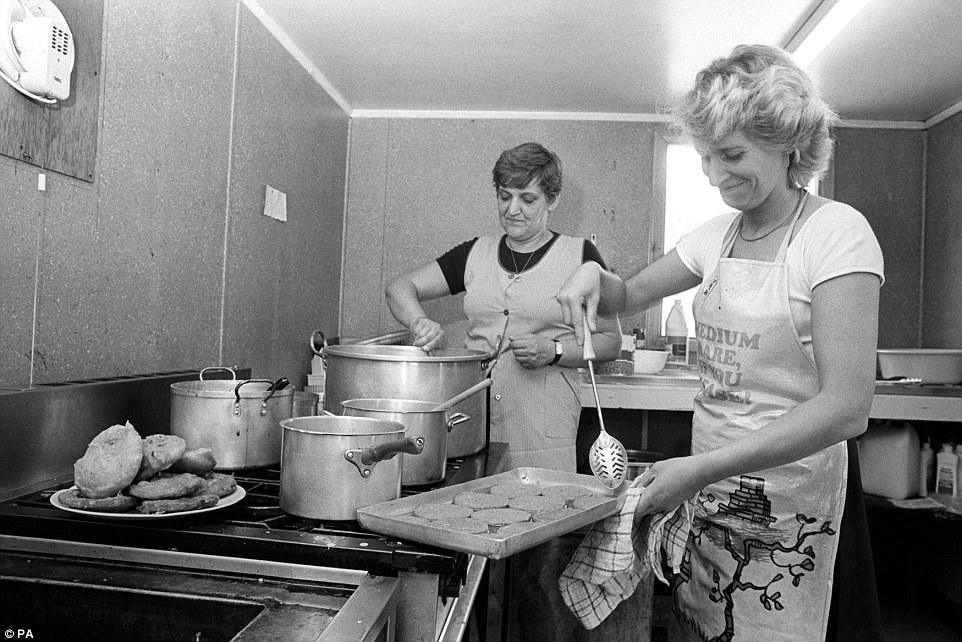
Miners’ wives preparing food for striking miners, 1984
It was once common for strike action to last weeks and months, sometimes even years and to escape the narrow confines of the sector that was taking action. As evidenced in the example of the miners strike of 84-85 which built a social movement in the communities around the mines and wider afield. This intense period of struggle bought wider actors into the fight than just the predominantly male workforce, challenging the traditional role that women had played during industrial disputes, while challenging gender roles in these communities themselves. As such by ‘socialising’ who participates in ‘strike action’ positive transformations can take hold, that further expose the class nature of society, but also its gendered and racialized characteristics. Can we rebuild what we has been lost, so we can be more effective in generalising these strikes?
Where are we going…socialising strikes
Since 2015 Plan C has adopted ‘social strike’ as a shared national orientation, originating in a series of discussions we held that sort to redress the failure of the contemporary workers movement to effect positive social change. Plan C has argued that when we take strike action our aim is to put the ability for capital to reproduce itself into crisis, this means that we develop a leverage whereby the owners of capital are forced to concede to our demands to protect their political hegemony. Inversely, capital and the state attempts to put our own ability to reproduce ourselves into crisis (the crisis of social reproduction). We are dependent on an income to survive under capitalism, when we withdraw our labour we thereby withdraw from this necessity and new autonomous forms of social life have to develop to ensure that we can sustain ourselves and our struggles.
We feel it is time to make strategic wagers on the capacity of struggles to generalise and build antagonistic solidarity movements, that not only can inspire other groups of workers to take collective action but lays the foundation for social movements to develop that can challenge the dominance of the market over our lives.
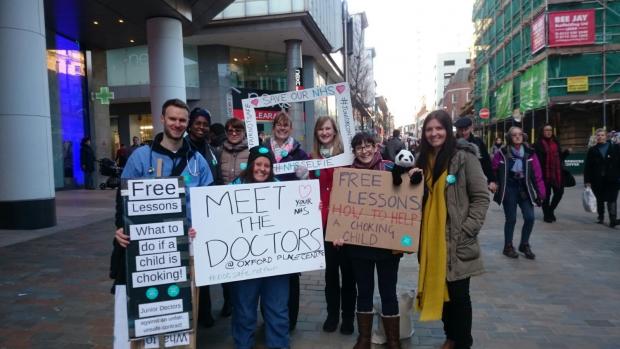
Junior doctors promote the free baby first aid courses during the last strike action
As such, the ‘Picket the Profiteers’ actions attempt to articulate the ‘social character’ of these strikes. The NHS is a public service upon which we all rely. With the strike being presented in the media as one based solely on wage demands and conditions, we can be blindsided to the wider social impact of what is at stake, i.e the long term future of a public health service. By supporting health workers we further expose the privatisation agenda that is driving the current assault on their working conditions. To take action in defence of health workers is to take action in defence of our public health service and opens up the possibility for debate in regard to how our public services could be run in the interests of both workers and users.
To achieve these ends we need to go on the offensive.
Let’s Picket the Profiteers on Tuesday 26th April and socialise the strikes!
Please send your action reports to the following website: http://www.pickettheprofiteers.org/

